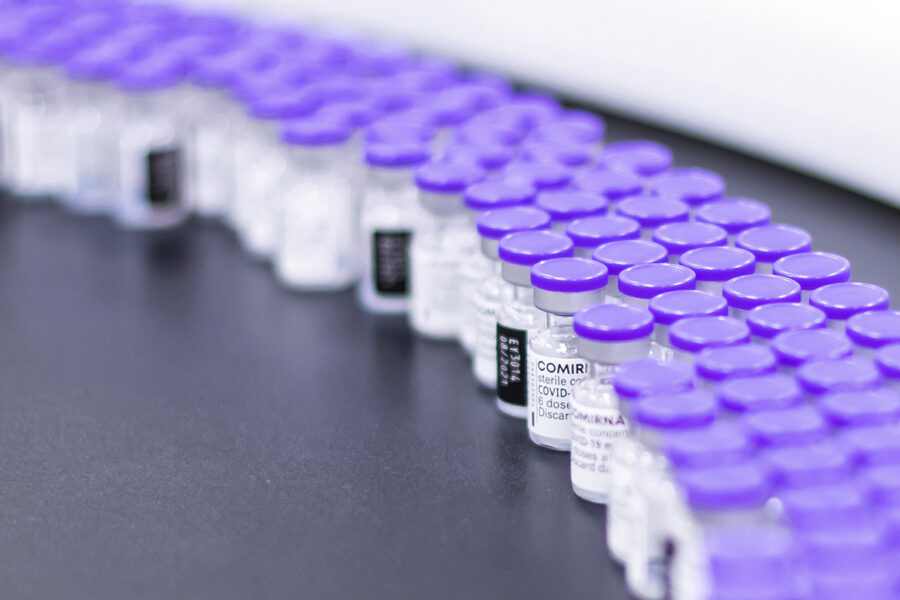CDC vaccine panel: Let regulators lead on Covid-19 booster shots

Members of the Centers for Disease Control and Prevention’s independent vaccine advisory panel voiced frustration Monday with the Biden administration’s plan to begin doling out Covid-19 boosters next month, arguing the announcement got ahead of federal regulators and could exacerbate vaccine hesitancy.
The White House strategy, which it announced earlier this month, is contingent upon FDA deeming boosters safe and effective and CDC recommending their use. Still, some CDC committee members made clear they were irked that the announcement came before federal regulators and scientists formally endorsed booster doses.
“That kind of opened the door to a lot of confusion,” said Sandra Adamson Fryhofer of the American Medical Association during the panel’s discussion of booster doses.
“Many, many, many” hospitals across the South have already begun administering third doses to their health care workers amid an explosion of Covid cases linked to the Delta variant, said Helen Keipp Talbot, a committee member and associate professor of medicine at Vanderbilt University.
“I think since it was given with a date, many assumed that it was given a blessing by the White House and this was the next step,” she said, adding that those providers have “now put themselves at risk” by immunizing individuals outside FDA and CDC recommendations.
Demetre Daskalakis, who’s been detailed to CDC’s Covid response group, warned committee members that health care providers who don’t follow federal guidance on how the vaccines should be administered may expose themselves to liability when seeking reimbursement from the federal government.
CDC data shows that 955,000 Americans have received additional vaccine doses, though it’s unclear how many of those were technically authorized.
So far, the federal government has authorized boosters only for a small number of people with compromised immune systems, including recipients of solid-organ transplants. Pfizer and BioNTech, whose vaccine received full FDA approval last week, have applied to FDA for permission to offer boosters. The companies behind the two other vaccines used in the U.S. — Moderna and Johnson & Johnson — have said they intend to seek approval for boosters but have not yet done so.
The Biden administration’s decision to announce it would offer boosters to all adults has created an awkward situation for federal regulators, who are now left to chart a path forward despite limited, and sometimes confusing, data on vaccines’ effectiveness over time.
A presentation from the CDC committee’s Covid vaccine work group didn’t mention the Biden administration’s September time frame for boosters. It also avoided describing booster shots as a fait accompli, emphasizing it’s “critical” to await more safety data and regulatory permission before doling them out.
“As with other recommendation for Covid vaccines, we will review the data in a systematic and transparent fashion policy on booster doses will be coordinated with FDA for regulatory allowance,” the CDC’s Sara Oliver said.
One of the key issues the CDC’s independent advisers must grapple with is what the goal should be for the U.S. Covid vaccination program — preventing severe disease, hospitalization and death, or fighting off all infections, even mild ones. Committee chair Grace Lee suggested the latter is impossible right now, but the White House’s booster announcement eschewed consideration of which populations may need boosters once those who were among the first to be vaccinated — and thus were more at risk — receive additional doses.
“We are not at the point in the vaccination program in the U.S. or globally where … that seems to be achievable,” she said. While the U.S. has a steady supply of doses at the ready, and hundreds of millions more on order, many countries around the world are struggling to complete a first round of vaccinations.
The CDC vaccine work group believes the top priority should be ensuring unvaccinated Americans get inoculated, Oliver said. But on boosters, it’s emphasizing the prevention of severe disease in at-risk groups.
The risk-based booster approach Oliver floated would give initial priority to long-term care facility residents, health care workers and individuals older than 65 or 75. She noted that preventing even mild Covid cases in health care personnel is critical, since they can’t work if they’re symptomatic.
Committee members pushed for clear guidelines on how to administer boosters once they are approved by FDA. The CDC panel is expected to reconvene in mid-September to assess the latest data, ahead of any FDA decision on additional doses.
“We need to all go in the same direction to get everyone vaccinated, to get everyone protected and to keep everyone protected, and not to waste this precious resource,” Fryhofer said.
Go To Source
Author: POLITICO

